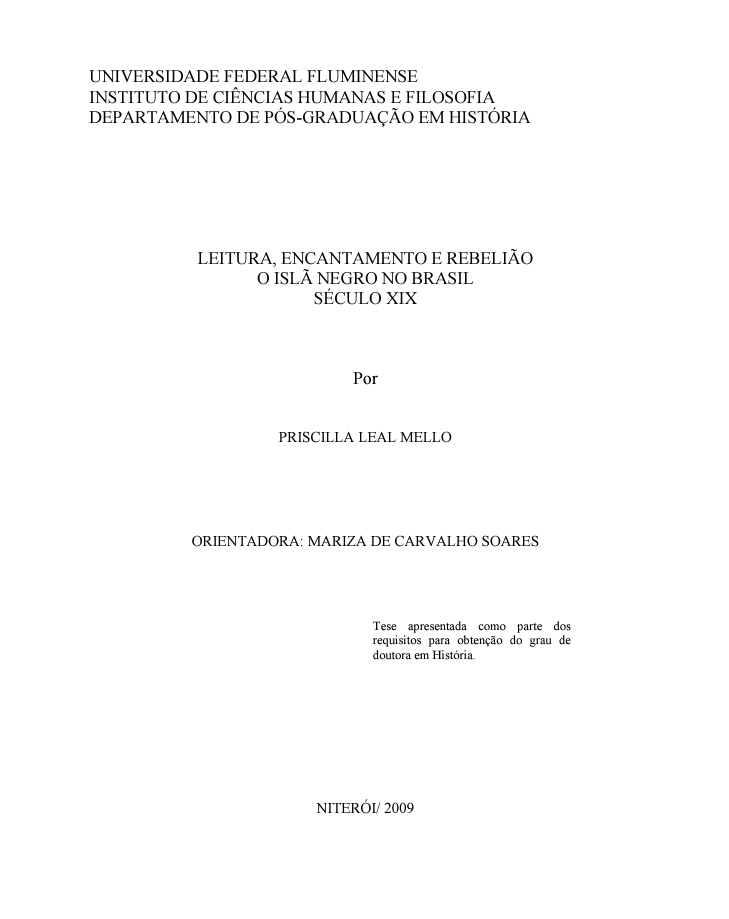
The aim of this work is to think about the Male Rebellion of 1835 in Brazil according to readings and writings exercises practiced by Muslim slaves in the beginning of the XIX century at Salvador and Reconcavo, in Bahia. For achieving this objective, we took into consideration the day-by-day life at the coranic schools created by the slaves themselves. This exercise is an effort to demonstrate the existence of what we called the “inteligentia” haussa in the rebellion. This research also demonstrates that it is possible to establish a series of parallels between the Muslim practices of readings and writing in different regions of the Atlantic World, a movement that we called Atlantic Literacy. At the end, we propose a review of the place of the Africa in our History, demonstrating that the knowledge produced by African scholars has much more chance to have influenced the fights for freedom in Americas than those ideas developed by the philosophers of the Enlightenment.
Mello, P. L., ‘Leitura, encantamento e rebelião: o Islã negro no Brasil (século XIX)’ (Unpublished doctoral thesis: Universidade Federal Fluminense, 2009).
I agree to the terms outlined below:
You agree to upload and assign Mosqpedia Database the rights to use the content worldwide and in perpetuity across all current and future media platforms. Mosqpedia Database may edit, copy, adapt and translate your contribution.
The content will be distributed under the Creative Commons Attribution-Deed – Attribution-NonCommercial-NoDerivatives 4.0 International – Creative Commons
All data will be stored in line with data protection regulations.